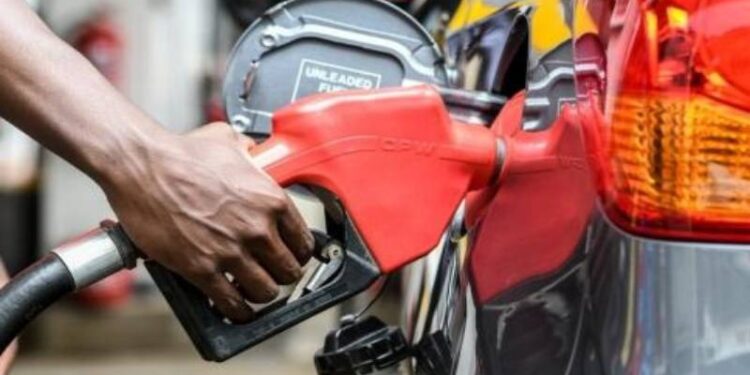In a notable shift, Kenya’s diesel and petrol consumption has experienced its first growth in three years, signaling a potential rebound in economic activities and a stabilization of fuel prices. This development comes after a period of declining fuel demand, attributed to various economic challenges and fluctuating global oil prices.
Data from the Energy and Petroleum Regulatory Authority (EPRA) indicates that in the fiscal year 2024, the consumption of petroleum products stood at 5.46 million cubic meters, a slight 2.1% decline from 5.57 million cubic meters in 2023 and 5.74 million cubic meters in 2022.
However, recent reports suggest a reversal of this trend, with diesel and petrol consumption posting growth, reflecting increased economic activities and a resurgence in transportation and industrial sectors.
The resurgence in fuel consumption can be partly attributed to the stabilization and subsequent reduction in fuel prices. In October 2024, EPRA announced a reduction in fuel prices, with super petrol decreasing by KSh 8.18 to retail at KSh 180.66 per liter in Nairobi, diesel at KSh 168.06, and kerosene at KSh 151.39.
This downward adjustment provided relief to consumers and businesses, potentially spurring increased fuel usage. Further contributing to the positive outlook, the average landed cost of imported super petrol decreased by 4.46% from US$641.14 per cubic meter in October 2024 to US$612.53 per cubic meter in November 2024.
Reduction in import costs has been instrumental in enabling local price adjustments, benefiting end-users and stimulating economic activities that rely heavily on fuel.
In a strategic move to stabilize fuel prices and alleviate pressure on the Kenyan shilling, the government has engaged in government-to-government (G-to-G) oil import agreements with Gulf nations. Initiated in April 2023, these deals involve partnerships with major oil exporters such as Saudi Aramco, Abu Dhabi National Oil Company, and Emirates National Oil Company. The agreements provide Kenya with a 180-day credit term for oil imports, allowing the country to accumulate the necessary foreign currency over time rather than requiring approximately $500 million monthly for immediate purchases. This arrangement has been instrumental in stabilizing the shilling-dollar exchange rate and reducing consumer pump prices. Initially set to conclude in December 2024, the Kenyan Cabinet approved an extension of the G-to-G oil deal in December 2024 to ensure continued economic benefits.
Concurrently, the Kenyan government has undertaken significant reforms in its fuel subsidy policies. In September 2022, President William Ruto announced the removal of fuel subsidies, citing the unsustainable financial burden they imposed on the national budget. The subsidies, initially implemented to shield consumers from volatile global oil prices, had become fiscally untenable. The International Monetary Fund (IMF) expressed concerns regarding the reintroduction of such subsidies, highlighting potential funding shortfalls and outstanding debts to oil marketers.
Notably, the transportation sector, a significant consumer of diesel and petrol, has shown signs of recovery. Increased movement of goods and people, coupled with a resurgence in tourism—evidenced by the 2.4 million visitors in 2024—has likely contributed to the uptick in fuel consumption.
This revival indicates a broader economic recovery, with fuel consumption serving as a key indicator of economic health.
Despite these positive developments, challenges remain. The global oil market is inherently volatile, and external factors can influence local fuel prices. However, the Kenyan government’s efforts to stabilize the economy and implement favorable policies are expected to mitigate adverse effects, fostering a conducive environment for sustained growth in fuel consumption.
Market analysts project that as the economy continues to stabilize, fuel prices may experience further reductions. This expectation is based on ongoing infrastructural developments, improved supply chain efficiencies, and strategic government interventions aimed at cushioning consumers from global oil price shocks.
The financial implications of increased fuel consumption are multifaceted. On one hand, higher consumption can lead to increased revenue for fuel marketers and the government through taxes. On the other hand, it necessitates careful monitoring to balance demand with sustainable supply, ensuring that price stability is maintained to avoid inflationary pressures.
Investors in the energy sector may find this growth trajectory encouraging, as it suggests a recovering market with potential for expansion. Companies involved in fuel importation, distribution, and retailing are poised to benefit from increased demand, provided they adapt to market dynamics and consumer needs effectively.
The recent growth in diesel and petrol consumption in Kenya marks a positive turn after years of decline. Stabilizing and reducing fuel prices have played a crucial role in this resurgence, reflecting broader economic recovery efforts. Sustaining this momentum will require continued strategic interventions, market adaptability, and a keen eye on global oil market trends to ensure that the benefits of increased fuel consumption translate into long-term economic prosperity.










